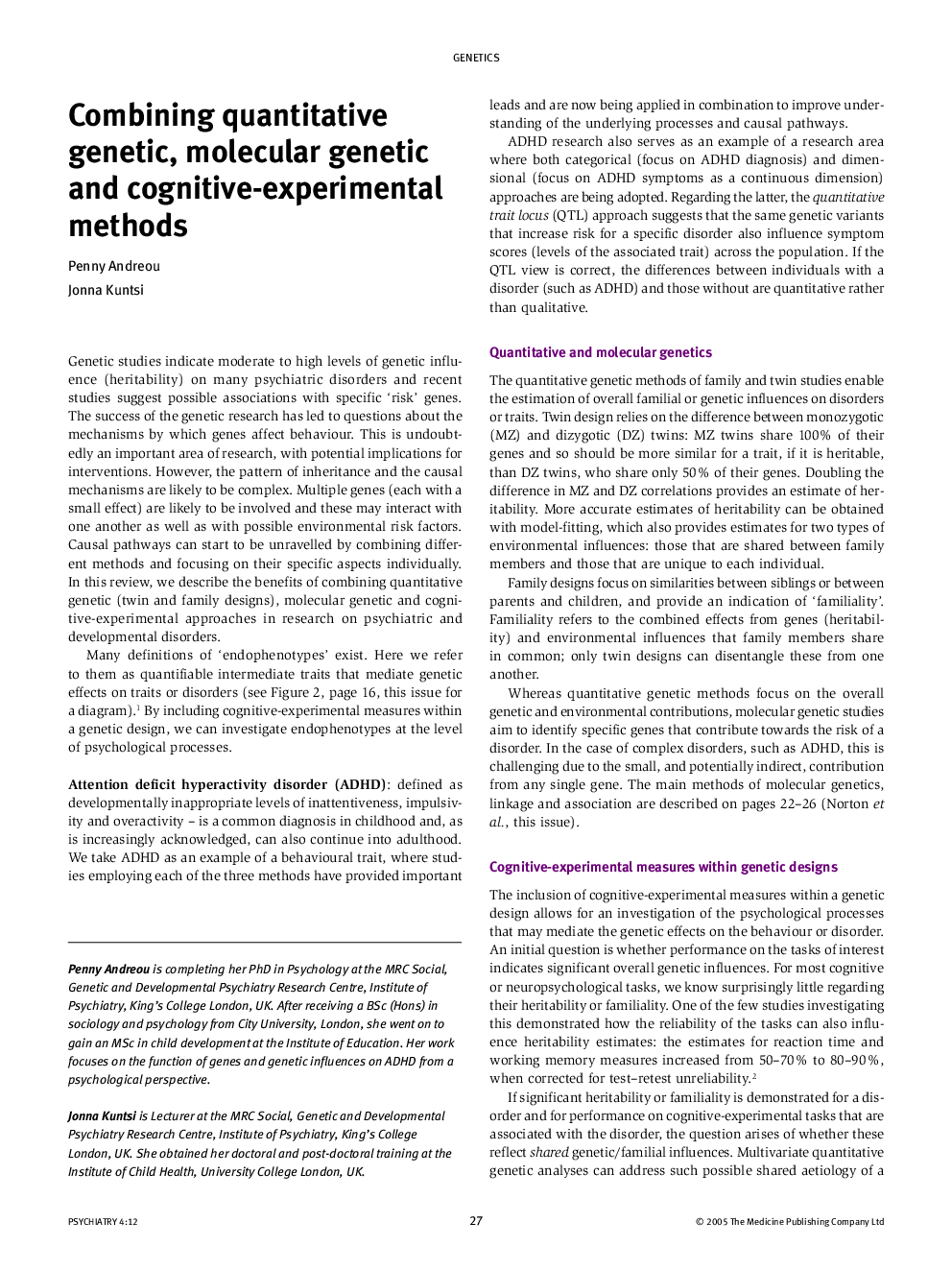| Article ID | Journal | Published Year | Pages | File Type |
|---|---|---|---|---|
| 9381750 | Psychiatry | 2005 | 4 Pages |
Abstract
Many psychiatric and developmental disorders show substantial genetic influences. Identifying specific genes that contribute to the liability for such complex disorders has proved to be challenging, but progress is being made. Multiple genes are likely to be involved, each of which may also interact with other genes, as well as with possible environmental risk factors. The 'functionality' of genetic influences - the mechanisms by which genes affect behaviour - has become an important focus for research. The study of cognitive endophenotypes enables an investigation of psychological processes that may mediate genetic effects on behavioural traits or disorders. In this review we consider the benefits of combining cognitive-experimental, quantitative genetic (twin and family designs) and molecular genetic approaches in research on psychiatric and developmental disorders. We take attention deficit hyperactivity disorder (ADHD) as an example of a research area, where each of the three methods have provided important leads and are now being applied in combination to improve understanding of the causal pathways involved.
Keywords
Related Topics
Health Sciences
Medicine and Dentistry
Psychiatry and Mental Health
Authors
Penny Andreou, Jonna Kuntsi,
